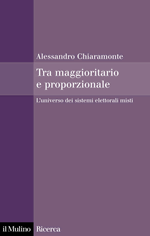Ricerca
-
For a Few Votes More. The Italian General Elections of 2006
De Sio, L. (2007). For a Few Votes More. The Italian…
-
Al di là delle apparenze. Il risultato delle elezioni
De Sio, L. (2007). Al di là delle apparenze. Il risultato…
-
Chi è arrivato primo?
D’ALIMONTE, R. D. R., & S, V. (2006). Chi è arrivato…
-
A Razor-thin Victory
CHIARAMONTE, A., D’ALIMONTE, R. D. R., & SIO, L. D. (2006).…
-
Proporzionale ma non solo. La riforma della Casa delle libertà
A.CHIARAMONTE, & D’ALIMONTE, R. D. R. (2006). Proporzionale ma non solo.…
-
Dove stanno davvero gli elettori fluttuanti?
The close outcome of the Italian general elections of 2006 highlights…
-
Elettori “convertiti”, elettori “traghettati”
De Sio, L. (2006). Elettori “convertiti”, elettori “traghettati.” In Itanes (Ed.),…
-
Political Involvement and Electoral Competition
De Sio, L. (2006). Political Involvement and Electoral Competition. Center for…
-
C’era una volta la doppia scheda. Voto differenziato e rendimento di coalizione nelle elezioni politiche del 2001
In the three Italian political elections held with the 75%-plurality, mixed-member…
-

Tra maggioritario e proporzionale. L’universo dei sistemi elettorali misti
Chiaramonte, A. Tra maggioritario e proporzionale. L’universo dei sistemi elettorali misti,…